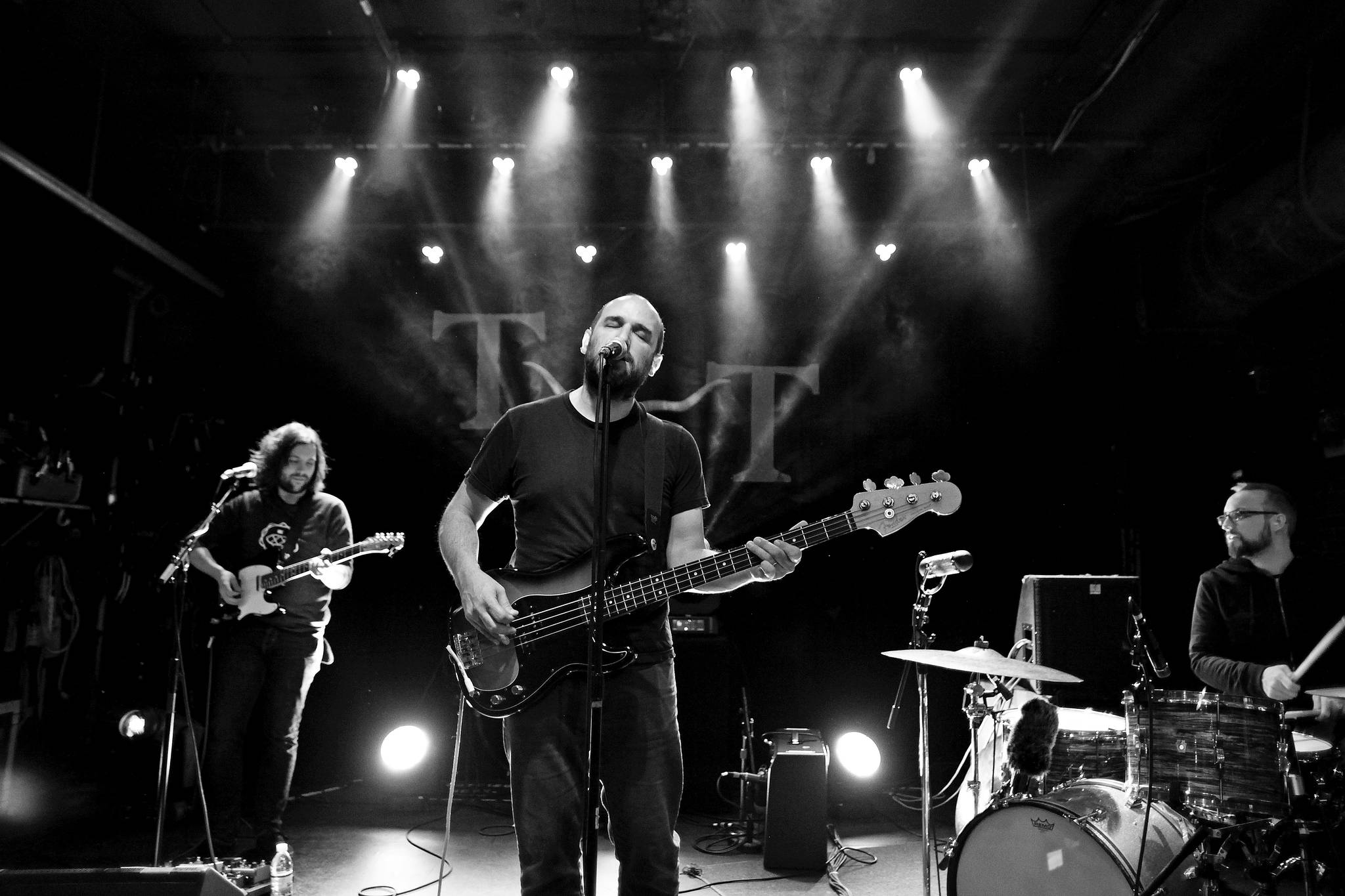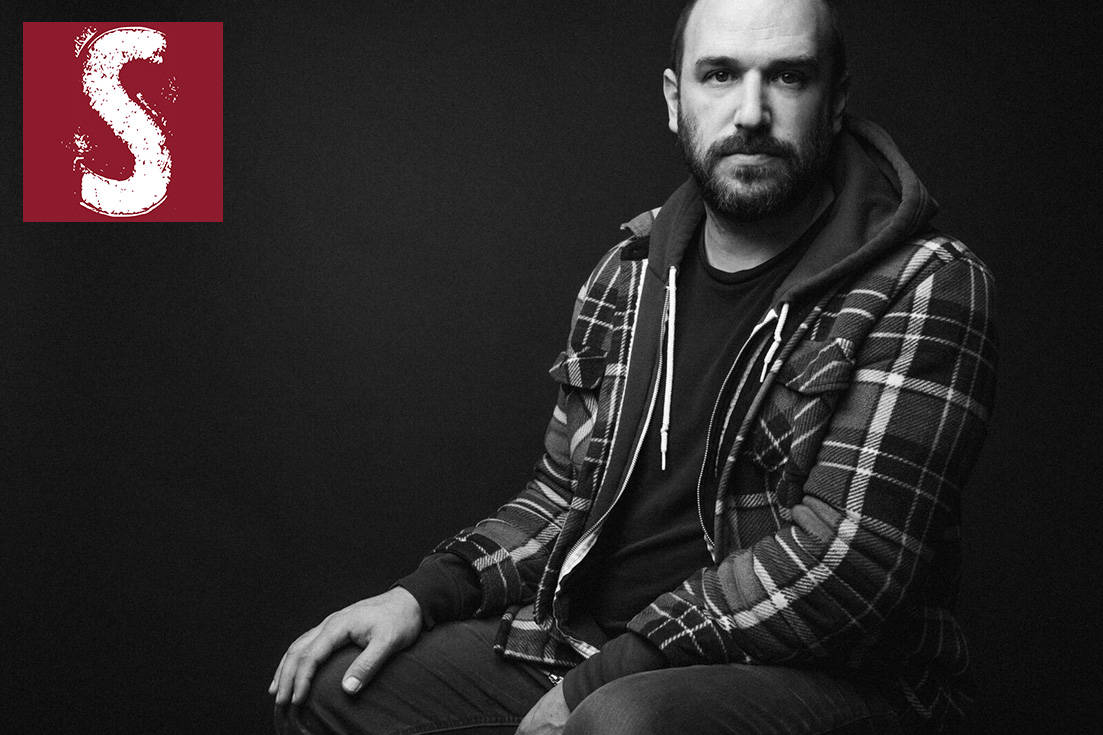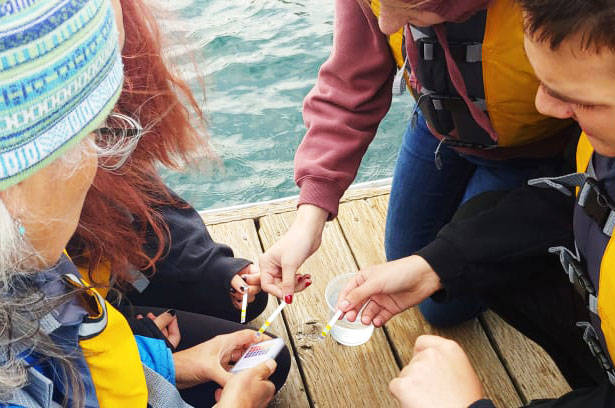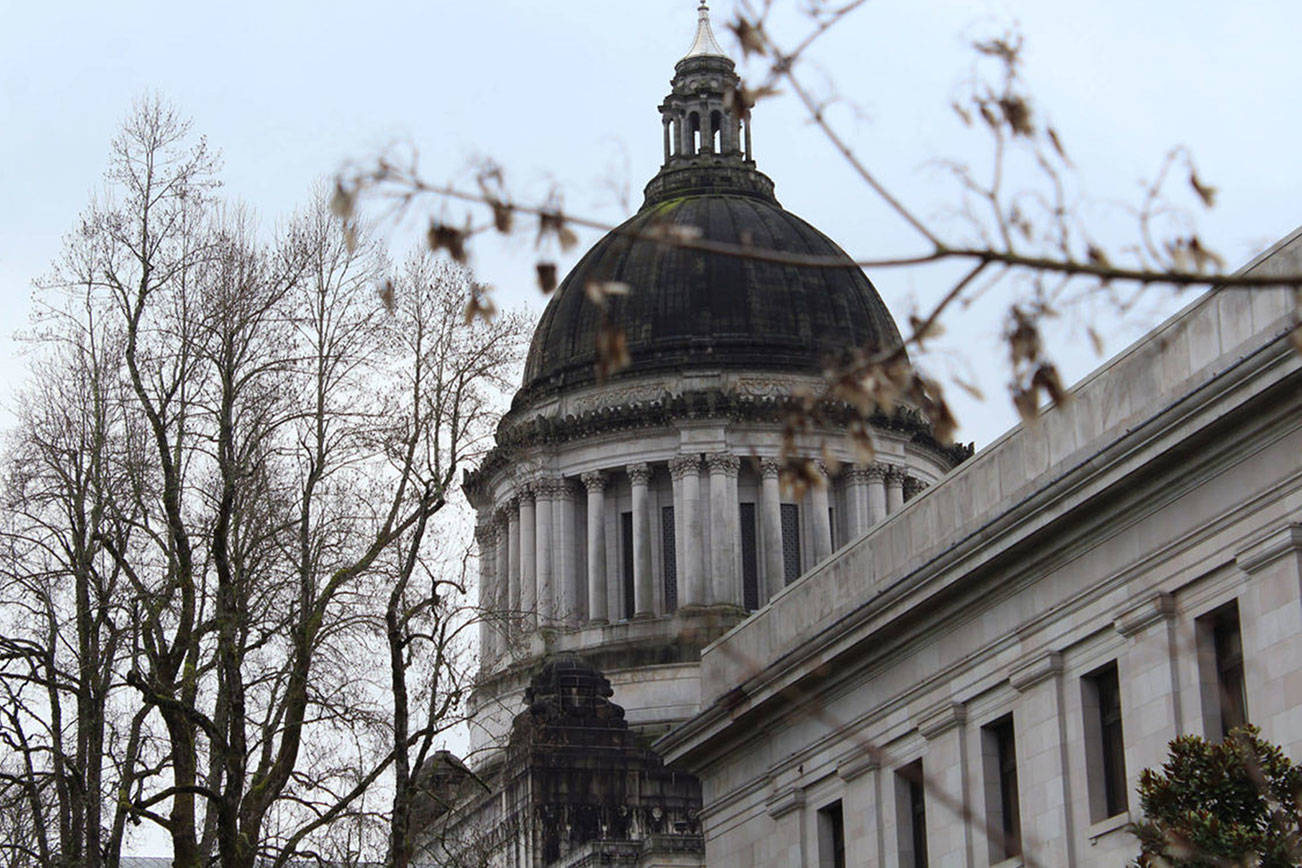When Pedro the Lion took the stage for the first of three nights at the Tractor Tavern last December, leader David Bazan paused for a few moments between songs to reflect on the occasion.
“This is the twentieth anniversary of a show, my very first club show ever in Seattle, here at the Tractor in 1997,” Bazan told the buzzing crowd, flanked by guitarist Erik Walters and drummer Sean Lane.
The crowd cheered, but an anniversary party is not what anyone showed up for. The focus in the run-up to this show, after all, had not been the beginning of Pedro the Lion, but the end. This was the first time that Bazan had performed under the moniker in almost a dozen years. That’s why the three-night stand had sold out more quickly than even a single David Bazan solo show in a mid-sized club like the Tractor might. It is also why the 48-date tour that followed has seen numerous sellouts across the country and why Bazan has earned himself a coveted Saturday night slot at this year’s Sasquatch! Music Festival.
Nonetheless, it was a fun bit of trivia from a gracious frontman, providing the crowd with a moment to reflect on how much older they have all become since first hearing Bazan’s aching voice sing songs of disillusionment. And as the band tore through its 20-song set, that detail served as a reminder of how far Bazan has come.
The first sign of a different kind of Pedro the Lion came with the light show, an arena-ready display that morphed throughout the set, helping to give shape and impact to a setlist that was near-identical on all three nights at the Tractor. It was a show meant to dazzle, a clear departure from the modest band that took the stage two decades prior.
“Honestly, the idea that what I was doing could be considered entertainment was downright offensive to me,” Bazan says now of Pedro’s early years. “I was just like, ‘Fuck you, this is not entertainment, this is serious.’ ”
The revived Pedro the Lion is still serious, says Bazan, but the band has evolved. Bazan claims that old hangups have been discarded and the show that he has been playing since the beginning of the year has been painstakingly constructed to deliver a message … in three acts.
“You’re putting together a string of things anyways,” Bazan says. “You might as well just really do it in a way that moves you, that you think has a beginning, a middle, and an end and actually goes somewhere.”
Where the show goes is into the heart of an issue that is driving our national conversation. Populated with men behaving badly and with impunity, and shot through with humility and scorn, Pedro the Lion’s stage show stands as a powerful rebuke of toxic masculinity. It’s a remarkable accomplishment considering that many of the songs that Pedro the Lion is playing were written in the ‘90s by a guy in his 20s.
To understand how that happened, it’s important to know where the band is coming from and why that show two decades ago was so important.
The key aspect of playing the Tractor Tavern for the 1997 edition of Pedro the Lion was this: It was not a church. That was a big deal for a young group that was created in the cauldron of faith. Bazan was brought up the son of a pastor, his band was formed while he attended a Christian college, and many of the band’s early gigs were religious road shows: playing for various Youth Groups around the area or within the cloister of a burgeoning faith-based music community in Seattle. Those performances often paid well and the support of the community kept the band going, Bazan says now, but the goal was always to break out into the secular scene, to play clubs like the Tractor Tavern.
What followed that early breakthrough, and others like it, was a successful decade-long run shaped by two big factors: Bazan’s unwillingness to forego songs about faith in his quest for secular acceptance and his embrace of doubt as a central aspect of faith. Of course, there was more to sing about than God, and Bazan was plenty adept at writing purely secular material, catchy songs that detailed more everyday struggles while lampooning social convention.
College rock fans signed on for Pedro’s earworm melodies and melancholic verse, while young Christians found in Bazan’s complex explorations of faith an antidote to anodyne worship music and plodding Christian rock. Pedro the Lion sold a quarter million albums to these fans. Then Bazan walked away, not because his faith was crumbling—though it was—but because he felt creatively stuck.
Before Bazan ended Pedro, the band had moved beyond faith and on to critiques of corporate power and right-wing politics—its music delivered with a sharper edge. It seemed like a natural turn to take. A fan I chatted up outside the Tractor Tavern in December put it succinctly: “After you do get strong enough to come out as not believing in the faith anymore and questioning faith, you can question politics and society.”
Bazan now points to evangelical support for George W. Bush and the birth of his daughter as major factors in his break from the church. This part of Bazan’s journey is well-documented. In fact, he wrote an album about it. It was the first full-length recording he released as a solo artist after ending Pedro the Lion, an album called Curse Your Branches. Since then, faith has mostly taken a back seat in his work, though he is not shy about calling out religious hypocrisy on Twitter.
When Bazan announced the reunion of Pedro the Lion, then, a return to faith was not in the cards. But in order to revive his old act, he did have to grapple with the work that he created when he was a believer. It was when he delved into his back catalogue that he discovered themes that were more resonant than he expected. Looking back, Bazan credits the timelessness of those early songs to his mother, who he says imbued him with a sense of justice that he then applied to the world around him and put into his songs.
“I saw a certain kind of patriarchal authority at the top of these hierarchies that were threatened by a strong female voice,” Bazan said. “I thought they were weak assholes, who really were blinded to issues of reason and justice within their little kingdom because they were in their pitiful little way drunk with the power of their position.”
As he listened to the tracks and put the set-list together, Bazan heard it all: hypocrisy, destructive power, sexism. And as the setlist came together, so did a new idea of what Pedro the Lion could be—an idea that is firmly rooted in what it once was.
“It reads like recent headlines from any given state with this catastrophe of some kind of sex scandal or some kind of like embezzlement and like deaths in high places and all this crazy stuff and the motivations for it and the distortion and the the madness of it and the American sickness of it,” he said. “All these songs are about that.”
Listen to the rest of the story on the Seattleland podcast, available at seattlelandpod.com and on all major podcasting platforms.










